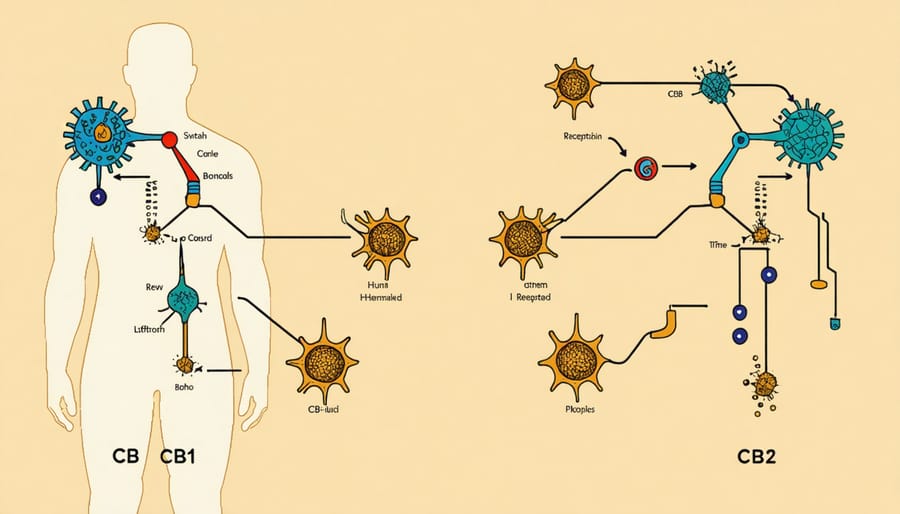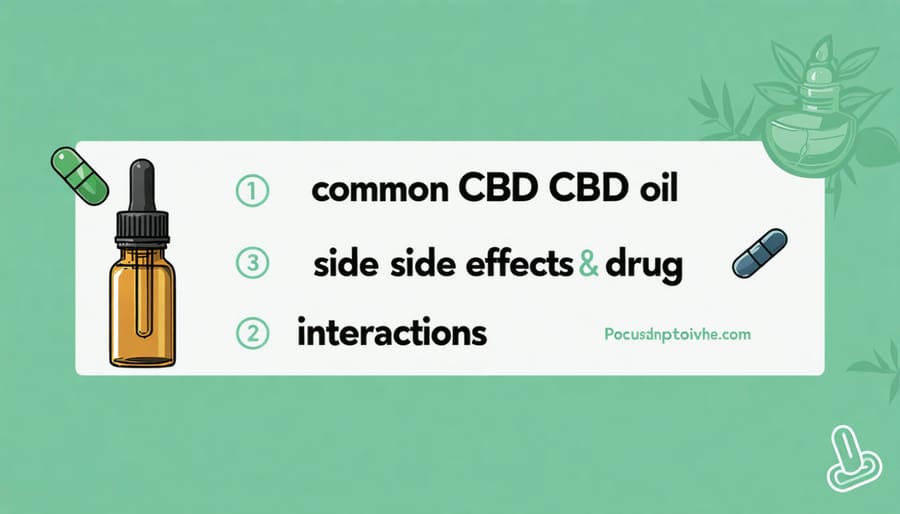
CBD Oil’s Proven Medical Benefits: What Research Actually Shows
CBD oil has emerged as a groundbreaking therapeutic compound, offering relief for numerous medical conditions while avoiding the intoxicating effects associated with traditional cannabis. Different types of CBD oil and Dopeboo delta 9 gummies provide varying benefits, from managing chronic pain to reducing anxiety and inflammation. Clinical research demonstrates CBD’s potential in treating epilepsy, with the FDA-approved medication Epidiolex marking a significant milestone in CBD’s medical recognition. Recent studies also indicate promising results for conditions including arthritis, multiple sclerosis, and treatment-resistant depression, while ongoing research explores its effectiveness in managing symptoms related to cancer treatment and neurodegenerative disorders. This natural compound works by interacting with the body’s endocannabinoid system, offering a well-tolerated alternative or complement to conventional medications, though patients should always consult healthcare providers before beginning CBD treatment.
How CBD Oil Works in the Human Body
CBD oil works primarily through its interaction with the endocannabinoid system (ECS), a complex cell-signaling network present throughout the human body. This natural system plays a crucial role in maintaining balance, or homeostasis, affecting various functions including mood, sleep, appetite, pain sensation, and immune response.
The ECS consists of three main components: endocannabinoids (naturally produced cannabinoids in our body), receptors (CB1 and CB2), and enzymes that break down cannabinoids. CB1 receptors are primarily found in the central nervous system, while CB2 receptors are mainly present in the peripheral nervous system and immune cells.
Unlike THC, which directly binds to these receptors, CBD works more indirectly. It influences the ECS by preventing the breakdown of our natural endocannabinoids, allowing them to have a more lasting effect on our body. CBD also interacts with other non-cannabinoid receptors and ion channels, which explains its wide range of therapeutic effects.
For example, CBD’s interaction with serotonin receptors contributes to its anti-anxiety and anti-depressant properties. Its influence on vanilloid receptors helps explain its role in pain management and inflammation reduction. CBD also shows promise in neurological conditions through its effects on other receptor systems involved in brain signaling.
The compound’s ability to work through multiple pathways while producing minimal side effects makes it particularly interesting from a medical perspective. CBD’s indirect approach to influencing the ECS also means it doesn’t create the intoxicating effects associated with THC, making it a more appealing option for many patients.
Understanding how CBD works helps explain why it can address such a wide range of conditions – from chronic pain and anxiety to epilepsy and autoimmune disorders. This broad therapeutic potential stems from the ECS’s fundamental role in maintaining bodily balance and CBD’s ability to support this natural system.

Evidence-Based Medical Applications
Epilepsy and Seizure Management
CBD oil has emerged as a groundbreaking treatment for epilepsy and seizure disorders, marking one of its most well-documented medical applications. Research into treating epilepsy with cannabis has led to significant breakthroughs, including the FDA’s approval of Epidiolex, the first CBD-based prescription medication for severe forms of epilepsy.
This prescription medication has shown remarkable success in treating Lennox-Gastaut syndrome and Dravet syndrome, two rare and severe forms of epilepsy that often begin in childhood. Clinical trials have demonstrated that CBD can reduce seizure frequency by 30-60% in many patients, offering hope to those who haven’t responded well to traditional anticonvulsant medications.
CBD’s anticonvulsant properties work through multiple mechanisms in the brain, including modulating calcium channels and reducing neuronal excitability. This helps stabilize electrical activity in the brain that typically leads to seizures. While Epidiolex represents the gold standard for epilepsy treatment with CBD, many patients also report benefits from high-quality CBD oil products used under medical supervision.
For those considering CBD for seizure management, it’s essential to work closely with healthcare providers to determine appropriate dosing and monitor potential interactions with other medications. Regular blood work may be necessary, as CBD can affect how the liver processes certain anticonvulsant drugs.
Pain and Inflammation Control
Research has consistently shown that CBD oil may be effective in managing various types of chronic pain and inflammatory conditions. CBD interacts with the body’s endocannabinoid system, which plays a crucial role in regulating pain sensation and inflammatory responses. Studies indicate that CBD can help reduce inflammation by inhibiting certain inflammatory mediators and modulating immune system responses.
Clinical trials have demonstrated promising results for CBD in treating arthritis pain, with patients reporting significant improvements in joint mobility and reduced inflammation. Multiple sclerosis patients have also experienced relief from muscle spasticity and neuropathic pain when using CBD oil as part of their treatment regimen.
The anti-inflammatory properties of CBD extend beyond joint conditions. Research suggests it may help with inflammatory bowel diseases, such as Crohn’s disease and ulcerative colitis, by reducing intestinal inflammation. Additionally, CBD has shown potential in managing chronic back pain, fibromyalgia symptoms, and post-exercise inflammation in athletes.
What makes CBD particularly appealing for pain management is its favorable safety profile compared to traditional pain medications. Unlike opioids, CBD doesn’t carry a risk of dependency, and unlike NSAIDs, it typically doesn’t cause gastrointestinal issues with long-term use. However, it’s important to note that while many users report significant pain relief, individual responses can vary, and CBD should be used under medical supervision, especially when combined with other medications.
Mental Health Applications
Research has shown promising results regarding CBD oil’s effects on mental health, particularly in managing anxiety, depression, and sleep disorders. Studies indicate that CBD interacts with serotonin receptors in the brain, which play a crucial role in mood regulation and emotional well-being.
For anxiety management, CBD has demonstrated potential in reducing symptoms of generalized anxiety disorder, social anxiety, and panic attacks. Many patients report feeling calmer and more centered after using CBD oil, with reduced racing thoughts and physical tension. The compound’s natural anxiolytic properties work without the sedating effects common to traditional anti-anxiety medications.
In cases of depression, CBD shows promise through its interaction with the endocannabinoid system, helping to regulate mood and emotional responses. While not a replacement for conventional antidepressants, some patients find CBD helpful as a complementary treatment for managing depressive symptoms.
Sleep disorders have also responded positively to CBD treatment. The compound addresses both primary insomnia and sleep issues secondary to anxiety or pain. Users often report improved sleep quality, longer sleep duration, and easier time falling asleep. CBD’s ability to reduce anxiety and physical discomfort contributes to its effectiveness as a sleep aid.
It’s important to note that while these applications show promise, patients should consult healthcare providers before incorporating CBD into their mental health treatment plan, especially if taking other medications.

Administration and Dosing Considerations
CBD oil is available in various different CBD product forms, each designed for specific administration methods and therapeutic needs. The most common forms include tinctures, capsules, topical preparations, and oral sprays. Tinctures are typically administered sublingually (under the tongue) using a dropper, allowing for relatively quick absorption and precise dosing. Capsules offer convenience and consistent dosing but may take longer to take effect due to digestive processing.
When it comes to dosing, there’s no universal recommendation as individual responses to CBD vary significantly. Factors affecting optimal dosage include body weight, metabolism, the specific condition being treated, and the concentration of CBD in the product. Healthcare providers generally recommend starting with a low dose (5-10mg) and gradually increasing it while monitoring effects, known as the “start low, go slow” approach.
For most conditions, daily doses typically range from 20mg to 300mg, though some patients may require higher amounts. It’s essential to maintain a consistent schedule and track effects in a symptom diary. Morning administration is common for daytime symptoms, while evening doses may be preferred for sleep-related issues.
Key considerations for administration include:
– Taking oil with fatty foods can enhance absorption
– Holding tinctures under the tongue for 60-90 seconds improves uptake
– Spacing CBD doses away from other medications
– Maintaining consistent timing of doses
– Storing products properly to preserve potency
Patients should always consult healthcare providers before starting CBD, especially if taking other medications, as CBD can interact with various drugs. Regular monitoring and dose adjustments may be necessary to achieve optimal therapeutic benefits while minimizing any potential side effects. Documentation of dosing patterns and responses helps in fine-tuning individual treatment plans.
Safety and Side Effects
While CBD oil is generally considered safe for most users, it’s important to understand potential risks and safety considerations before starting treatment. Research indicates that CBD is well-tolerated by most people, with common side effects being relatively mild and including fatigue, changes in appetite, and digestive issues like diarrhea or nausea.
However, CBD can interact with various medications by affecting the way your body metabolizes drugs through the cytochrome P450 enzyme system. This is particularly important for individuals taking blood thinners, anti-seizure medications, or certain antidepressants. Always consult your healthcare provider before starting CBD, especially if you’re taking prescription medications.
Liver health is another consideration, as high doses of CBD may affect liver enzyme levels. Individuals with liver conditions should be particularly cautious and work closely with their healthcare team to monitor liver function during CBD use.
Quality and purity of CBD products are crucial safety factors. The FDA doesn’t strictly regulate CBD products, so it’s essential to choose products from reputable manufacturers who provide third-party lab testing results. Look for certificates of analysis that confirm the product is free from contaminants like pesticides, heavy metals, and residual solvents.
Special populations should exercise additional caution. Pregnant and breastfeeding individuals should avoid CBD due to limited research on its effects during pregnancy and lactation. Elderly individuals may be more sensitive to CBD’s effects and should start with lower doses. Children should only use CBD under strict medical supervision.
To minimize risks, start with a low dose and gradually increase it while monitoring your body’s response. Keep a journal of any side effects or changes in symptoms. If you experience adverse reactions, discontinue use and consult your healthcare provider immediately.
It’s also important to note that CBD may cause drowsiness or lightheadedness in some people, so avoid driving or operating heavy machinery until you understand how CBD affects you personally.

CBD oil has emerged as a promising therapeutic option for various medical conditions, supported by growing scientific evidence and patient experiences. Throughout this article, we’ve explored its diverse applications in managing chronic pain, anxiety, epilepsy, and other health concerns. The FDA’s approval of CBD-based medication for certain forms of epilepsy marks a significant milestone in legitimizing CBD’s medical potential.
However, it’s important to recognize that research is still ongoing, and many aspects of CBD’s therapeutic mechanisms require further investigation. Future studies need to focus on optimal dosing protocols, long-term effects, and potential drug interactions. Scientists are particularly interested in exploring CBD’s role in treating neurological disorders, autoimmune conditions, and mental health issues.
Patients considering CBD oil should always consult healthcare providers for personalized advice and continue following prescribed treatment plans. The growing acceptance of CBD in medical communities has opened doors for more comprehensive research, which will help establish standardized treatment guidelines and improve our understanding of its benefits and limitations.
As regulations evolve and research progresses, we can expect more evidence-based applications for CBD oil in medical treatment. This natural compound shows promise in complementing conventional therapies while potentially offering patients additional options for managing their health conditions effectively and safely.
Looking ahead, the field of CBD research remains dynamic, with new discoveries potentially expanding its therapeutic applications while ensuring patient safety remains paramount.
